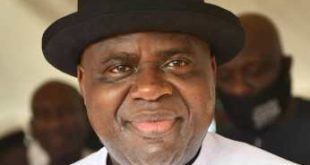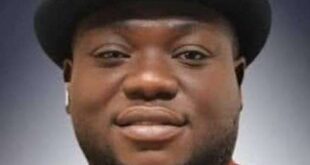Government representatives, civil society groups and members of the media met in Port Harcourt, the Rivers State capital, on Monday to deliberate on issues of participatory budgeting and fair taxation in the state.
Executive Director of Kebetkache Women Development & Resource Centre, Ms. Emem J. Okon, whose organization provided the platform on which the meeting was held, with support from Oxfam, said the meeting “is an interactive forum, an advocacy meeting between community groups and government officials.
“This is an outcome of a process we started in 2016 and a follow up to the series of meeting we conducted between 2016 and 2018. Between that period, we have trained over 800 CSOs and community members across Rivers, Cross Rivers, Enugu, Bayelsa and Akwa Ibom states in Nigeria.
“The trainings were focused on community needs assessment, budget monitoring, influencing and gender responsive budgeting,” she explained, adding that Kebetkache focuses on increasing citizens’ voices, so that citizens can engage with government and other stakeholders on their issues and challenges in the communities.
“So, we just created a forum, an opportunity for community members to interact with government, to present their issues, and also to learn from government responses, how government works and how they can continue the engagement.
“It is to demystify budget. Community members think that budget is an exclusive government document, that they don’t have any right to even see it. But if we are talking about democracy and participation in governance, participation in budget process is part of it.

Oxfam’s representative, Henry Ushie, said his organisation is engaged in “financing for development project across 13 countries,” noting that the project “is expected to last till December 2020.
“What we intend to do is to look at two themes, tax and budget. For us, we see that development revolves around two themes, tax and budget.
“We want to see how we can engage citizens to participate in budget formulation. We want to have a system where the people can sit back and contribute in to the budget so they own the budget as citizens,” he said.
Ushie noted that Oxfam and
her partners are working via the Financing for Development Project, to
collaborate and partner with government and local communities on issues of
participatory and gender responsive budgeting, adding that the organisation is
working with partners in Rivers State to facilitate interaction between
government ministries, departments and agencies as well as community groups.
Israel Egbunefu, deputy director, Budget, Monitoring and Evaluation, Rivers
State ministry of Budget and Economic Planning, said “Government is sensitive
to the needs of the people, and knows what the people need. It tries as much as
possible, within the limited resources to satisfy those needs.
He noted that because available resources are very meager, government needs to be frugal to manage it, adding that the various MDAs (ministries, departments and agencies) are the avenues through which government programmes are implemented.
“Budget will impact on the people. But they also have to know how to engage (with government). If you engage properly, you will get the requisite result, and can track government projects through the proper MDA,” Egbunefu said.
Pastor James Chuku, of the Advanced Civil Rights Initiative, one of the community development groups partnering with Kebetkache, said “our concern is that the government is for the people. So whenever the government makes budget, the budget must be according to the needs of the people they serve, not solely based on government priorities.
“That is the reason Oxfam, through Kebetkache, has trained us, and we have been posted to various local government areas to see for ourselves what government say they are doing and how they are doing it,” he said.
 PH Mundial – Port Harcourt Online Newspaper News Across The Region
PH Mundial – Port Harcourt Online Newspaper News Across The Region




